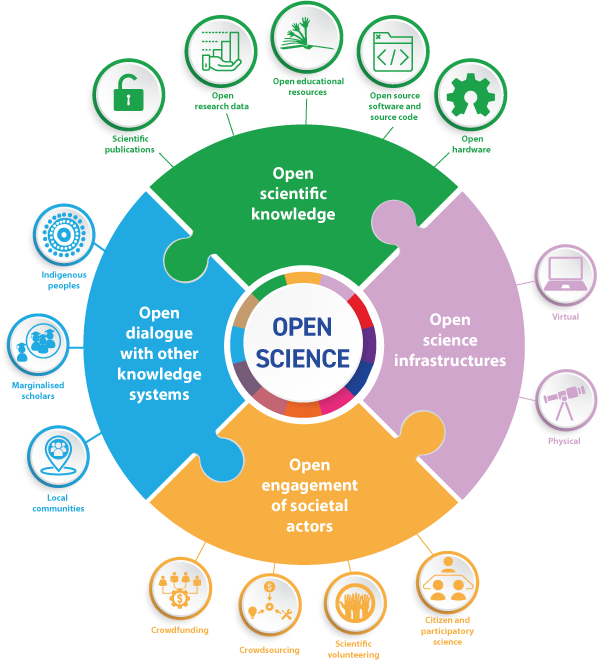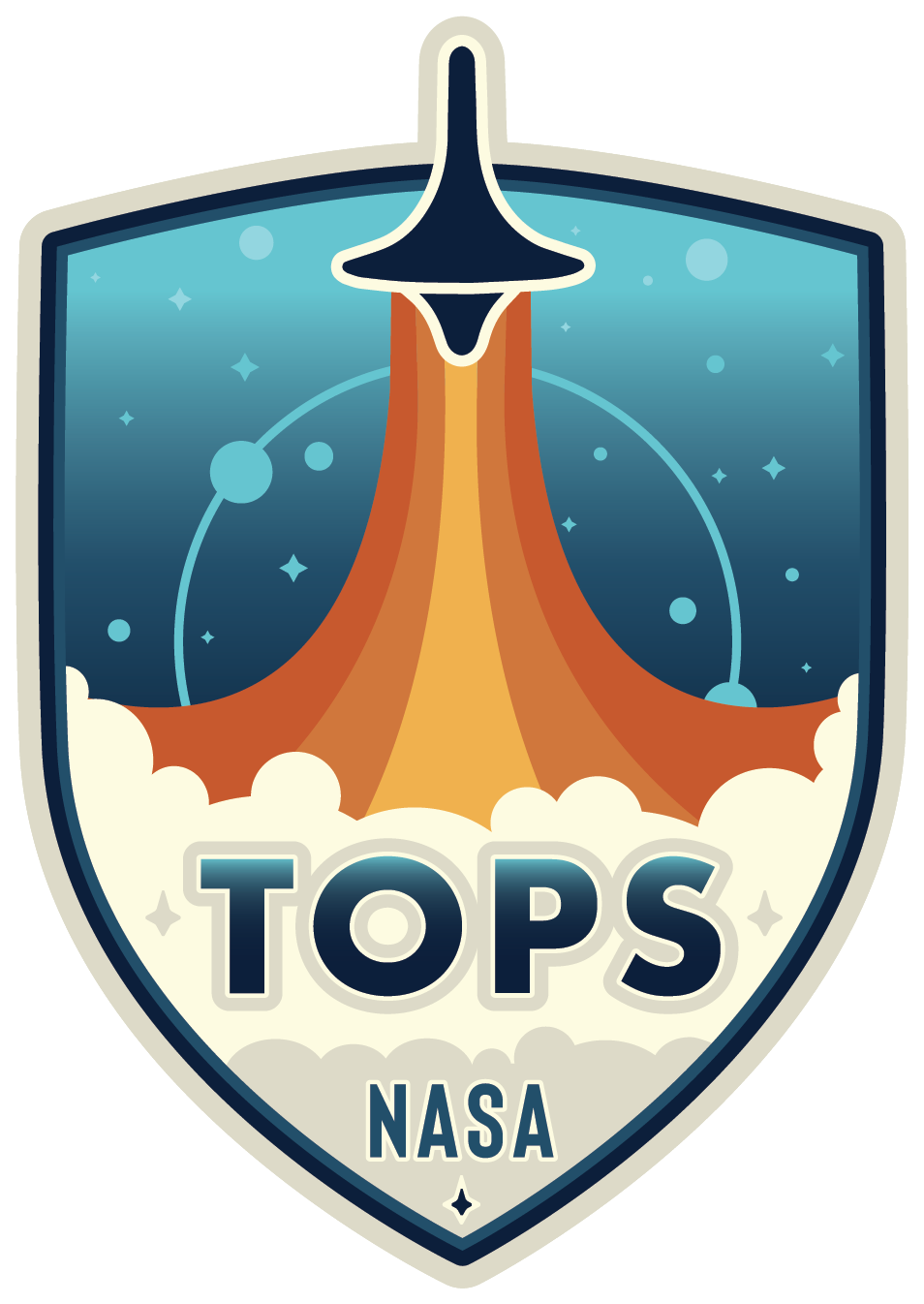As open as possible, as closed as necessary.
According to UNESCO (c.f. Recommendation on Open Science 2021), four key pillars of openness:
- open scientific knowledge;
- open science infrastructures;
- open engagement of societal actors; and,
- open dialogue with other knowledge systems.
- Open science promotes a more accurate verification of scientific results.
- Open science reduces duplication in collecting, creating, transferring and re-using scientific material.
- Open science increases productivity in an era of tight budgets.
- Open science results in great innovation potential and increased consumer choice from public research.
- Open science promotes citizens’ trust in science.
Source of text: OECD
For example, for open scientific knowledge, one could:
- open access scientific publications (e.g. here);
- open research data (e.g. here);
- open educational resources (e.g. here);
- open software and source code (e.g. here); and,
- open hardware (e.g. here).
- MOOC Science ouverte
- Déposer dans HAL
- L'identité numérique du chercheur
- Rédiger un DMP
- Déposer dans HAL (3eme session)
- Open Science European Conference (OSEC), Paris, France, 4-5 February 2022.

